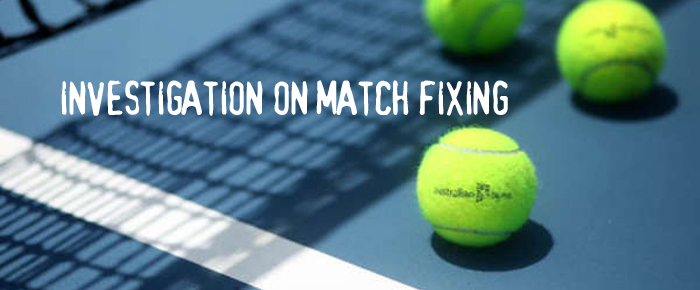
By Flint Wheeler
Match-fixing has been the talk of the tennis world at this year’s Australian Open, thanks to a joint investigation released by BBC and BuzzFeed News which alleges that prominent tennis players have been taking money from gamblers in order to lose matches, and that tennis authorities have been covering up the scandal.
Those allegations have taken on new relevance after the New York Times reported that the prominent betting company Pinnacle suspended bets on a mixed doubles match during the Australian Open due to suspicious gambling activity.
Further complicating matters is the fact that one of the players involved in the match, David Marrero, has been flagged by betting sites as a suspicious player due to unusual betting activity in previous matches.
According to the original BBC and Buzzfeed News report, the Tennis Integrity Unit (TIU), an anti-corruption unit founded by tennis authorities in 2008 to focus on match-fixing, has repeatedly failed to properly investigate players that gambling companies have reported as suspicious. The organization, which has only two full-time employees investigating the entire sport of tennis, told the NYT that it would not comment on Marrero’s mixed doubles match.
Mixed doubles usually doesn’t see much gambling action since it is a rather obscure discipline of tennis that is only played at the four majors. But when large amounts of money from a small number of accounts began to pour into the first-round contest between Spaniards Marrero and Lara Arruabarrena and the Czech/Polish duo of Andrea Hlavackova and Lukasz Kubot, Pinnacle’s system flagged the irregularities.
The majority of the money came in for Hlavackova and Kubot, who ended up winning the match 6-0, 6-3.
Marcos Blume, the head of sports books at Pinnacle, told the NYT that the pattern was “an indication that the match might be fixed.”
“It’s certainly believable,” Steve Fezzik, a sports gambling expert and Pregame.Com employee, “Marrero has a history with this sort of thing. Whether it’s match fixing or just the status of his knee keeps getting leaked to people who like to bet, that’s the hard part to prove, but either way that’s still a breach of integrity code.”
A betting insider told the wrote on Covers.com that Marrero has previously been flagged for ATP men’s doubles matches in Beijing, Shanghai, Vienna and Metz, France.
Additionally, Ferguson said that Marrero’s frequent doubles partner Fernando Verdasco, who upset Rafael Nadal in the first round of the Australian Open in singles, has been flagged for five “very suspicious” matches just since the U.S. Open last September.
As the tennis establishment remains silent, Marrero thinks that someone must have overheard and leaked information about his knee injury, thus leading to the suspicious betting action. He also indicated he sometimes struggles in mixed doubles, since he has to play against women.
“Normally, when I play, I play full power, in doubles or singles,” said Marrero, who won the doubles title at the 2013 ATP World Tour Finals. “But when I see the lady in front of me, I feel my hand wants to play, but my head says, ‘Be careful.’ This is not a good combination.”
Marrero also said he had had a scan that showed an inflamed tendon in his knee. Although he had played “my 100 percent,” he said, he was also cautious, hoping to avoid an injury that could keep him out “for three, four, five months.” He explained that mixed doubles was “important but not as important, you know?”
But overall, there’s no way to know whether Marrero is telling the truth or whether there is something much more sinister going on because the TIU is not speaking up about any of it.
Ferguson said that while it’s understandable why the TIU doesn’t release the names of the specific players it’s investigating, it’s crucial for them to be more open about the number of players cases it’s looking into and the actions that are being taken.
“They have to be more proactive,” he said. “Just say something generic — ‘In December we investigated 11 matches, of which we found six that we took forward.’ Just something. Particularly with the ATP having silent drug bans in the past, you can’t trust them.”
Ferguson also said it’s up to the media to “keep on [the TIU’s] case” and continue to push for more transparency and accountability in the sport, from top to bottom.
“There’s an incentive [for the TIU] to sweep it under the carpet,” he said. “But if they’re not talking, the public will assume the worst.”










































